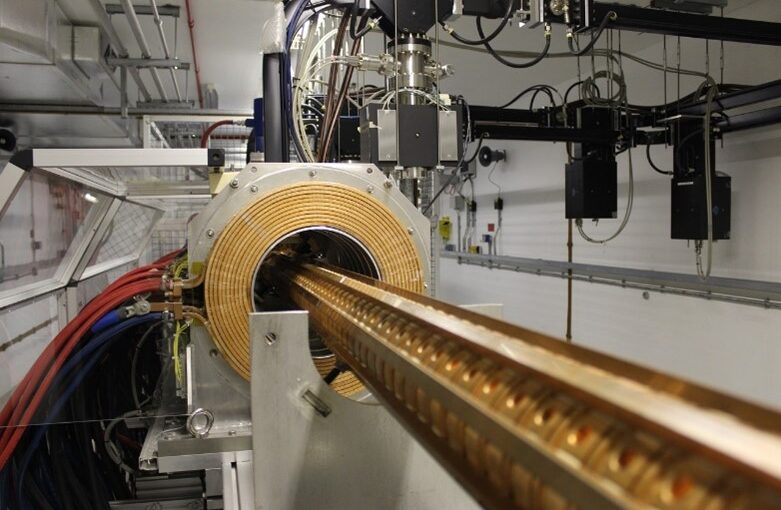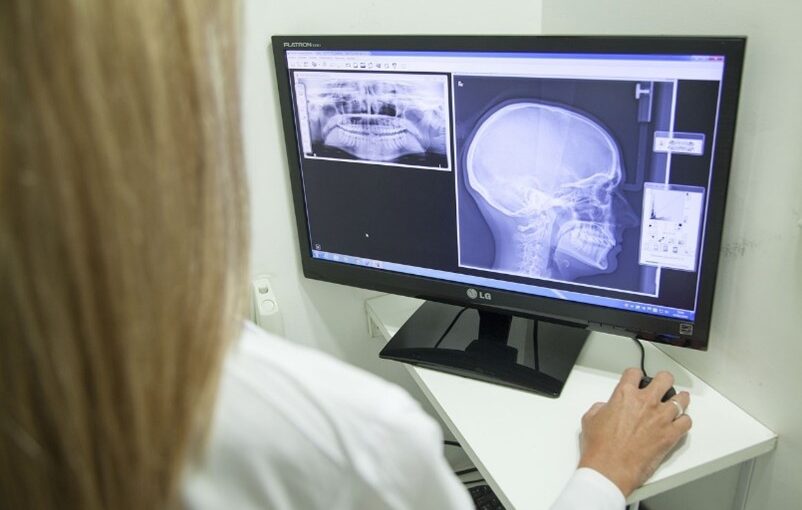Israeli Child Receives Pioneering Seated Proton Therapy with Innovative System
P-Cure is pioneering a groundbreaking approach in the field of proton therapy with its latest achievement: the treatment of a young child diagnosed with ocular cancer using a novel proton therapy system. This innovative system, which has received FDA clearance and is operational at P-Cure’s Clinical Development Center in Israel, allows patients to receive treatments… Read more
Significant Milestone Reached in Compact Particle Accelerator Technology

Researchers, led by The University of Texas at Austin and including international partners and TAU Systems Inc., have made a significant breakthrough in compact accelerator technology by developing a particle accelerator that is under 20 meters long and generates an electron beam with 10 billion electron volts (10 GeV) of energy. This advancement drastically reduces… Read more
Innovative Radiotherapy Method Potentially Halves Treatment Duration for Head and Neck Cancer

A groundbreaking study by the IAEA has found that a new radiotherapy technique for head and neck cancer could significantly shorten treatment times, especially beneficial for low- and middle-income countries (LMICs). This research, the largest of its kind, involved 12 centers across ten LMICs, including Argentina, Brazil, Cuba, India, Indonesia, Pakistan, Philippines, South Africa, Thailand,… Read more
WSU Veterinary Hospital Installs a New Linear Accelerator to Fight Cancer
Washington State University’s Veterinary Teaching Hospital has significantly advanced its cancer treatment capabilities by installing a new linear accelerator (LINAC). This state-of-the-art technology is set to revolutionize the way cancer is treated in pets, offering advanced radiation therapy that can not only prolong lives but potentially cure various cancers. Dr. Janean Fidel, a veterinary oncologist… Read more
Patients Privately Pay $2,500 for a Full-Body MRI Scan to Detect Cancer
Dr. Julianne Santarosa, celebrating July Fourth on a boat in Texas, received unsettling news during a full-body MRI scan conducted by Prenuvo. Radiologists had identified a lung nodule, raising concerns about her health. Although she hadn’t experienced any pain or specific symptoms, she had a gut feeling to get the scan after seeing a Prenuvo… Read more
MIT and Dana-Farber’s Breakthrough in Identifying Cancer Origins
In certain cancer cases, pinpointing the exact origin of the cancer is challenging, which complicates treatment decisions. Specific cancer treatments are tailored to different cancer types, and not knowing where the cancer originated from hinders treatment options. Fortunately, a collaboration between researchers at MIT and the Dana-Farber Cancer Institute has unveiled a machine-learning model, named… Read more
Available Diagnostic Imaging for Smaller Communities & Young Athletes

The Need for Imaging in Less-Populated Areas Numerous Americans encounter the inconvenience and discomfort of traveling long distances to reach the nearest MRI facility. Due to declining populations and the substantial operational expenses associated with imaging facilities, many small-town clinics have had to close their doors. This leaves patients to fend for themselves, compelled to… Read more
New MR, PET Images Analyze Alzheimer’s Biomarkers
An anti-amyloid antibody drug that reduces amyloid beta proteins in the brain has provided a novel treatment for Alzheimer’s disease. This innovative brain imaging solution for Alzheimer’s disease management can analyze Amyloid-Related Imaging Abnormalities (ARIA), a known side-effect in patients using the anti-amyloid drug. Previously, careful monitoring and management of ARIA was crucial due to… Read more
Prostate Cancer Treatment Vastly Improved
Cutting-edge technology and nuclear medicine are massively improving prostate cancer treatments, especially over the past two decades. Before 2000, prostate cancer was detected through manual palpation, a Prostate-Specific Antigen (PSA) blood test, and an ultrasound. Notably, prostate cancer is not visible in ultrasounds, so urologists would have to sample random prostate areas to discover the… Read more
Examining Breast Cancer Screening Age
The Radiological Society of North America (RSNA) recently released a Statement on Screening for Breast Cancer, sparked by new recommendations from the American College of Radiology (ACR) and the United States Preventive Services Task Force (USPSTF). The ACR and Society of Breast Imaging recommend an annual mammography screening starting at age 40, but in updated… Read more